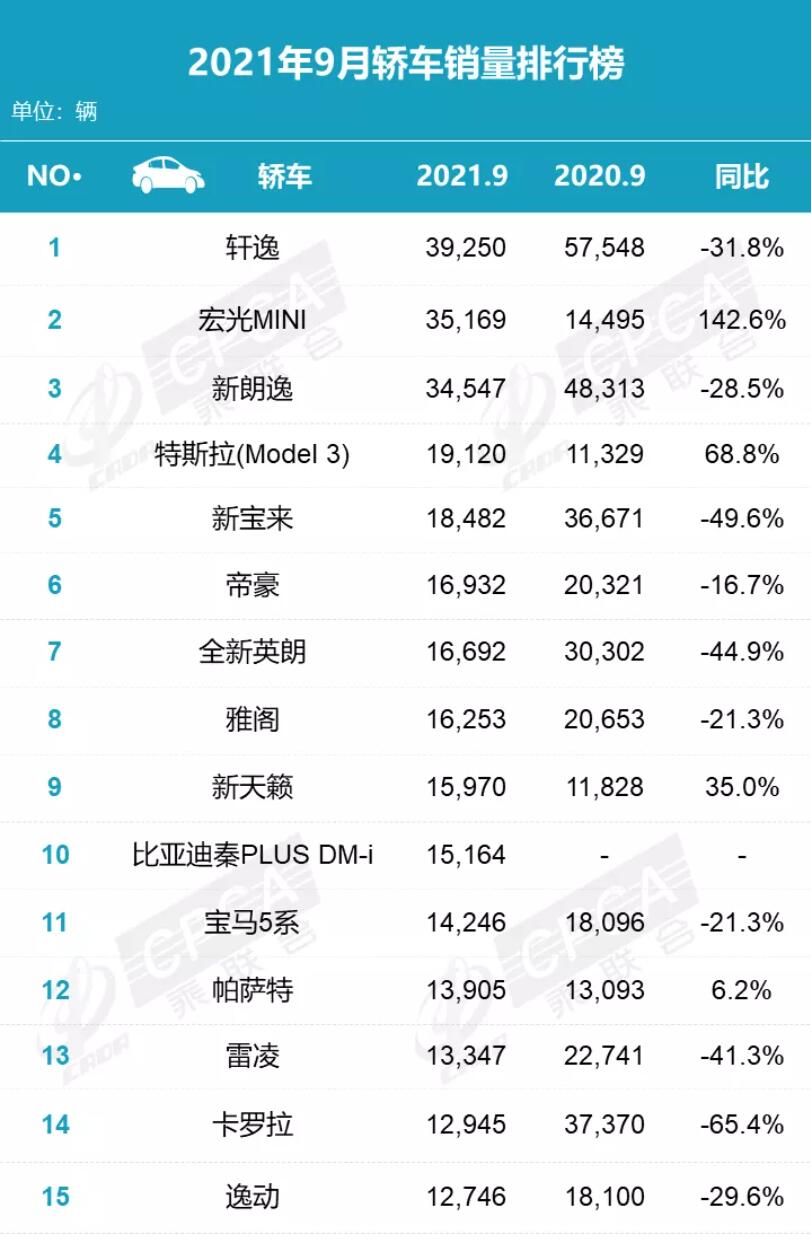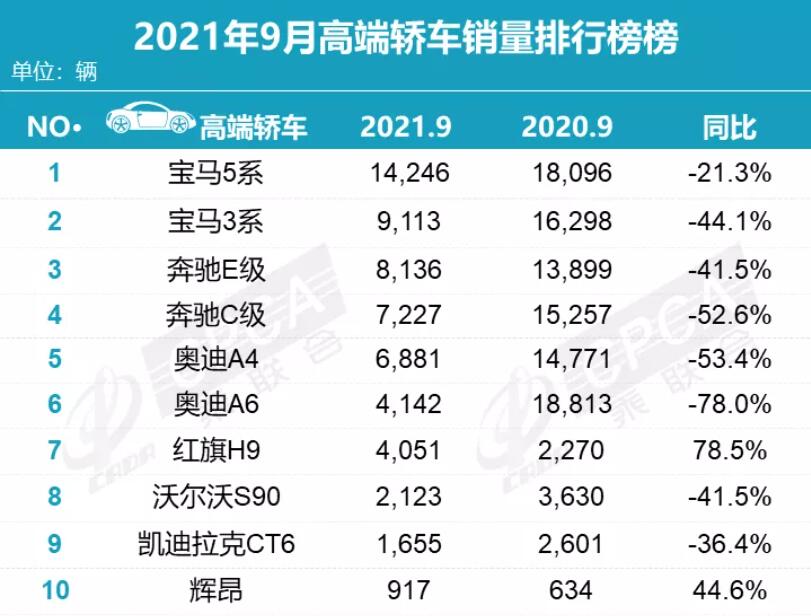Year-on-year sales performance in Sept: Tesla Model 3 up 68.8%, Nio ES6 up 63.9%, Nio EC6 up 21087.5%, while BMW 5 Series down 21.3%, Mercedes-Benz E-Class down 52.6%, Audi A4 down 53.4%.
China's transition to electric vehicles is happening much faster than many thought, at least in the high-end market.
Figures released Wednesday by the China Passenger Car Association (CPCA) show that sales of Tesla, Nio, Xpeng Motors and Li Auto models all saw significant year-on-year growth in September, while mainstream luxury fuel cars lost ground across the board.
Tesla Model Y, which only began deliveries in China in January, sold 33,033 units in China in September, taking away the top spot in SUV sales that Great Wall Motor's Haval H6 had long previously held, according to the CPCA.
The Tesla Model 3 sold 19,120 units in September, up 68.8 percent year-on-year, ranking third in new energy sales behind the Hongguang Mini EV and Model Y.
The Nio ES6 sold 5,260 units in September, up 63.9 percent year-on-year, and the Nio EC6 sold 3,390 units in September, up 21,087.5 percent from 16 units in its first month of delivery a year ago.
These two Nio models made it into the top 10 in the sales ranking of premium SUVs in China.
Li Auto's sole model, Li ONE, sold 7,094 units in September, up 102.5 percent year-on-year.
Xpeng Motors' flagship sedan, the P7, sold 7,512 units in September, up 192 percent year-on-year.
BYD Han EV sold 7,772 units in September, up 114.5 percent year-on-year.
How did mainstream luxury fuel cars perform in September? Here are the CPCA's figures:
BMW 5 Series: 14,246 units, down 21.3 percent year-on-year.
BMW 3 Series: 9,113 units, down 44.1 percent year-on-year.
Mercedes-Benz E-Class: 8,136 units, down 52.6 percent year-on-year.
Audi A4: 6,881 units, down 53.4 percent year-on-year.
Audi A6: 4,142 units, down 78 percent year-on-year.
Hongqi H9: 4,051 units, up 78.5 percent year-on-year.
Volvo S90: 2,123 units, down 41.5 percent year-on-year.
Cadillac CT6:1,655 units, down 36.4 percent year-on-year
Phideon: 917 units, up 44.6 percent year-on-year.
This performance for traditional luxury brands is to be expected, as it has been widely reported that the chip shortage is hitting them harder.
This has led to continued price increases for luxury brands in the dealer channels over the past few months, and has also driven their used car prices up significantly, with some dealers even buying back vehicles already sold to customers at invoice prices.
Earlier today, we also saw a piece of news that also reflects the dilemma facing luxury brands.
According to mydrivers.com, the parents of Ms. Wang from Hefei, Anhui Province planned to buy her an Audi SUV as a wedding gift, but the dealership was late in delivering it, causing Ms. Wang to threaten suicide by jumping off a building.
According to the report, the women's family had previously negotiated a purchase price of RMB 376,000 at the Audi 4S store and signed a purchase agreement. But when they picked up the car at the store, the salesperson told them that they had to pay an additional fee to pick up the car.
The woman did not mention the specific price increase, but only said it was "very high", so she protested against the action.
(Photo source: Unsplash)



